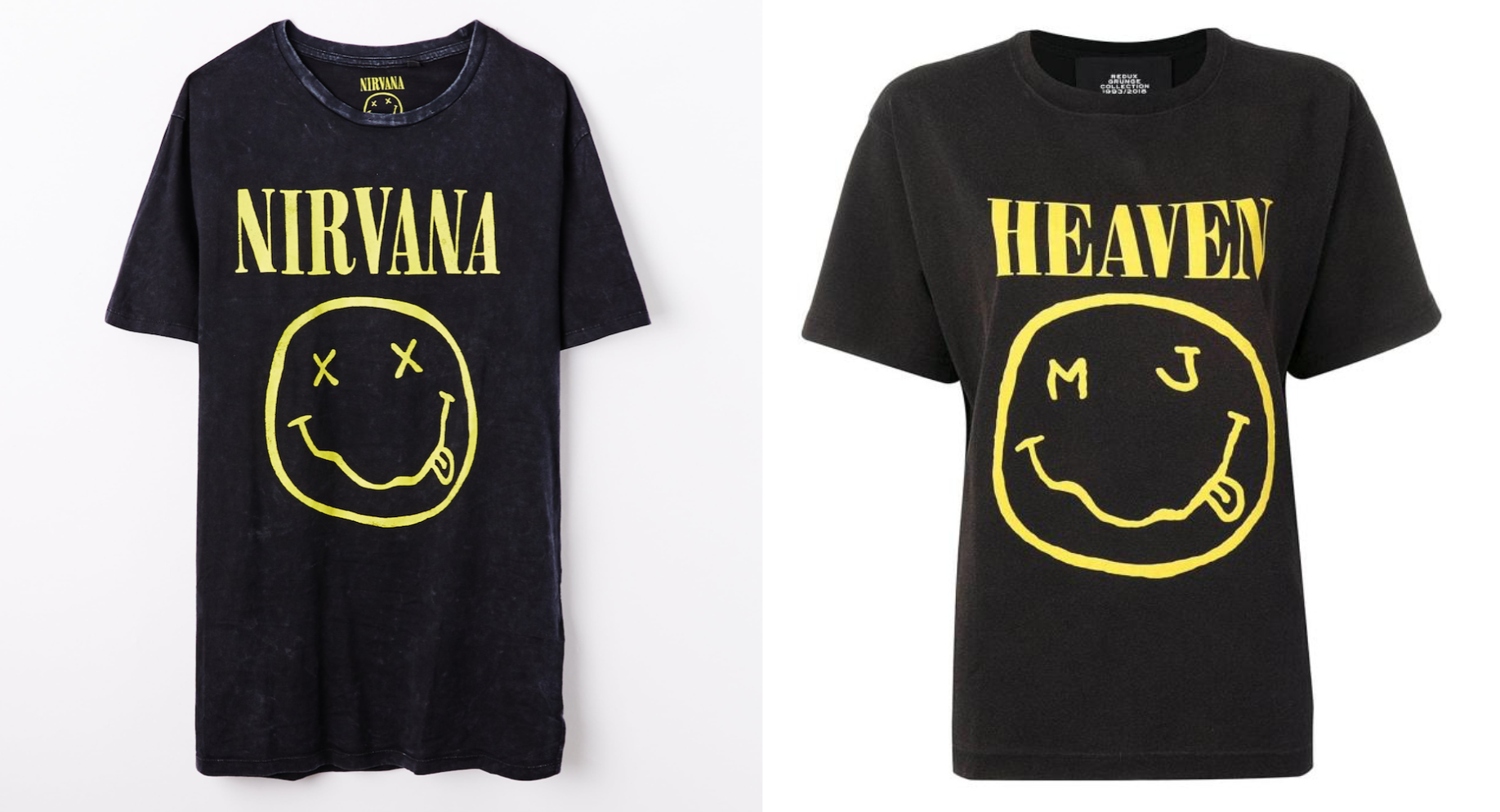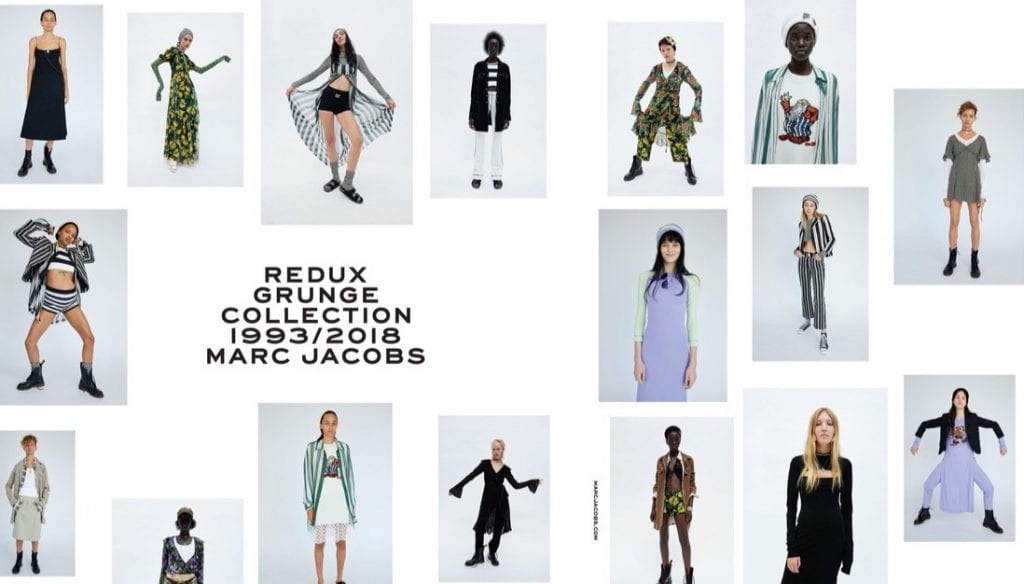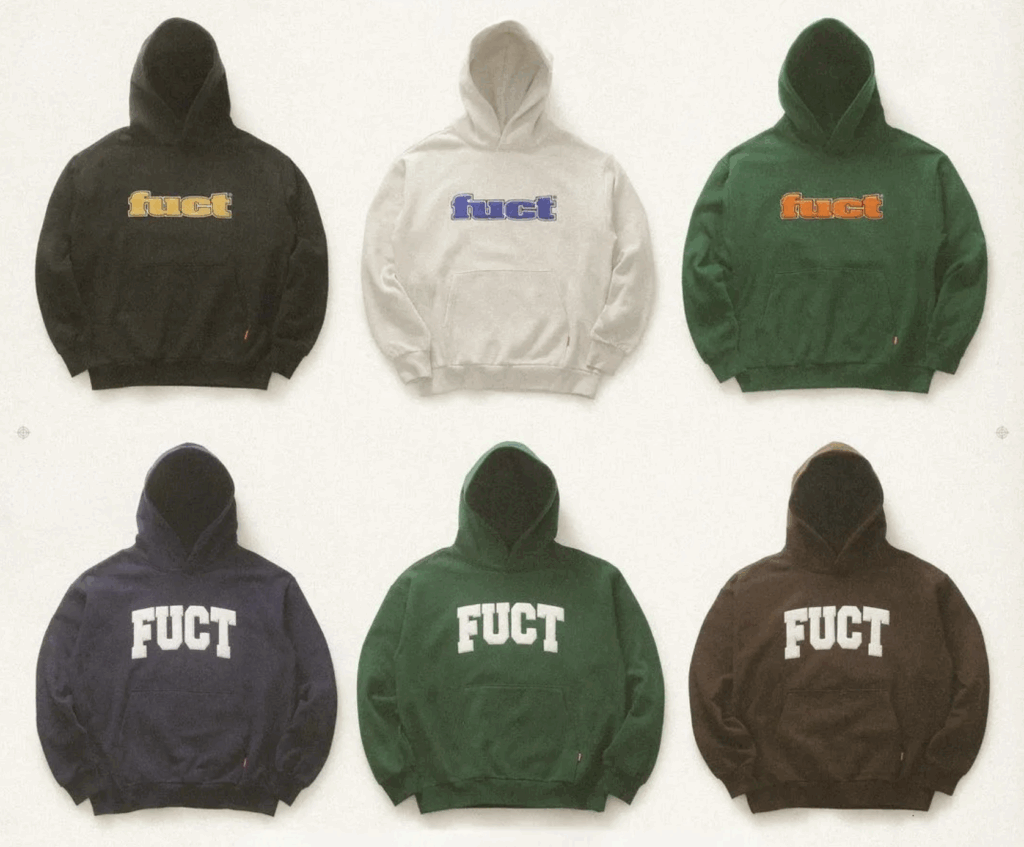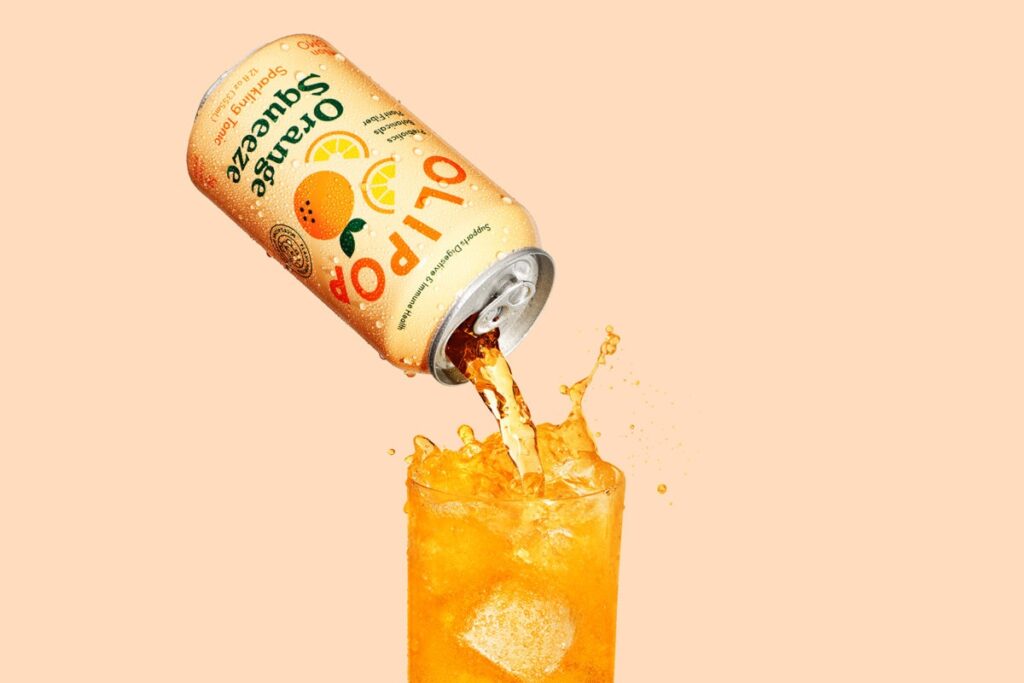Nirvana has slapped Marc Jacobs International and a couple of big-name retailers with a strongly-worded lawsuit, claiming that the famed fashion brand “infringed Nirvana’s copyright, misleadingly used Nirvana’s trademarks, and utilized other elements with which Nirvana is widely associated to make it appear that Nirvana has endorsed or is otherwise associated with” Marc Jacobs’ “Bootleg Redux Grunge” collection.
According to the complaint filed by Nirvana, LLC – the legal entity formed in September 1997 by Dave Grohl, Krist Novoselic, and the Courtney Love-controlled Cobain Estate – in a California federal court on Friday, the late Kurt Cobain created Nirvana’s “Smiley Face” logo in 1991 and “Nirvana has used that copyright-protected design and logo continuously since [then] to identify its music.”
Beyond music, Nirvana – which is “one of the most famous and influential rock bands in history” – has “licensed its copyrighted logo on literally dozens of different t-shirts, shirts, hats, hoodies, bags, backpacks, glasses, wallets, and other items of merchandise, many of which have sold extensively for decades.”
Thanks to such extensive use, the “Smiley Face” design has “come to symbolize the goodwill associated with Nirvana,” thereby giving rise not just to copyright protection for the design but to trademark rights, as well, since “a significant portion of the consuming public assumes that all goods or services that bear the logo are endorsed by or associated with Nirvana.”
Against this background, LVMH-owned Marc Jacobs recently re-released its controversial Grunge Collection, which designer Marc Jacobs originally showed for Perry Ellis back in 1993. In that collection are “items of clothing that utilize a design and logo virtually identical to Nirvana’s [Smiley Face] image,” the complaint asserts, including t-shirts, sweatshirts, and socks.
However, unlike the Nirvana-logoed t-shirts being offered by Target or Urban Outfitters, for instance, Marc Jacobs allegedly did not receive authorization/pay a license fee to use Nirvana’s valuable intellectual property on its $115 t-shirts and nearly $200 crewneck sweatshirts.
The Marc Jacobs wares are labeled the “Bootleg Grunge” t-shirt and sweatshirt, names that almost certainly won’t help the brand’s defense in this case, in which Nirvana LLC is asserting claims of copyright and trademark infringement, unfair competition, and false designation of origin.
And speaking of defenses, there are, of course, potential fair use – namely, parody – defense arguments to be made here, centering on whether Marc Jacobs’ swapping in of the word “Heaven” for “Nirvana” is “transformative” enough to shield the brand from infringement liability.
In addition to Marc Jacobs’ use of a virtually identical image, the brand is “using a virtually identical copy of Nirvana’s [legally-protected] image … as part of a wider campaign” that co-opts Nirvana’s intellectual property. According to Nirvana, this includes making the Nirvana image the signature image at ‘Bootleg Redux Grunge” collection promotional events, using lyrics from Nirvana songs, such as “Come as you are,” in ads for the collection, and displaying “memes,” such as one “from a video of Nirvana and its co-founder and singer Kurt Cobain performing ‘Smells Like Teen Spirit’” on the official Marc Jacobs Tumbler page.
 A Nirvana “Smiley Face” tee (left) & a tee from Marc Jacobs’ Grunge collection (right)
A Nirvana “Smiley Face” tee (left) & a tee from Marc Jacobs’ Grunge collection (right)
Such expansive usage of Nirvana’s Smiley Face logo and various other brand-identifying elements is an “intentional” effort by Marc Jacobs to “evoke Nirvana in the minds of [consumers],” per Nirvana and to “associate the entire ‘Bootleg Redux Grunge’ collection with Nirvana, one of the founders of the ‘Grunge’ musical genre, so as to make the ‘Grunge’ association with the collection more authentic.”
While Nirvana LLC says its counsel has demanded that Marc Jacobs, as well as stockists Neiman Marcus and Saks Fifth Avenue, immediately stop marketing and selling the allegedly infringing wares, the defendants “have ignored those demands, failed to stop any of the other wrongful activities” and instead, have increased their marketing of the collection.
As of publication, Marc Jacobs’ e-commerce site, FarFetch, Neiman Marcus, Nordstrom, Bergdorf Goodman, and other retailers, were offering up the garments in question.
Marc Jacobs’ “oppressive, fraudulent, and malicious conduct” has “caused Nirvana to suffer irreparable injuries, and threaten to dilute the value of Nirvana’s licenses with its licensees for clothing products,” and as a result, the group is seeking an array of monetary damages and injunctive relief, the latter of which would require the defendants to immediately and (potentially) permanently cease all use of Nirvana’s “Smiley Face” design and logo, and Nirvana’s name, song titles, any other indicia of Nirvana.
The lawsuit comes 25 years after Jacobs showed his first Grunge collection, which was not well-received by Nirvana’s late front man. Shortly after his Perry Ellis runway show, Jacobs sent samples to Kurt Cobain and Courtney Love, the latter of whom declared years later in an interview with WWD, “We burned it. We were punkers – we didn’t like that kind of thing,” likely referring to the huge mark ups on otherwise down-market wares.
More recently, on the heels of Hedi Slimane’s grunge-centric Saint Laurent debut, Love told TFL, “Hedi is a genius. No offense to Marc but he never got it right. This is what it really was. Hedi knows his shit. He got it accurate, and MJ and Anna [Sui] did not.”
Love and Jacobs seemed to have since put any ill-will between them to bed, particularly as Love appeared alongside Missy Elliott and Marilyn Manson in his very ’90s-inspired Fall/Winter 2016 ad campaign, and her daughter Frances Bean Cobain followed a year later in Jacobs’ Spring/Summer 2017 ad, thereby, making the suit something of an interesting twist.
While Marc Jacobs is currently embroiled in another copycat lawsuit, one filed in November 2017 by a handful of independent artists, who claim that the brand’s Resort 2017 collection was “unfortunately … not original” and “intentionally and knowingly” made use of their original pin and patch designs, Nirvana has had its fair share of intellectual property squabbles over the years, most centrally among Grohl, Novoselic, and Love, who were locked in several bitter lawsuits over rights dating back to 2001.
A rep for Marc Jacobs was not immediately available for comment.
*The case is Nirvana LLC v. Marc Jacobs International, LLC, et al., 2:18-cv-10743 (C.D.Cal).














